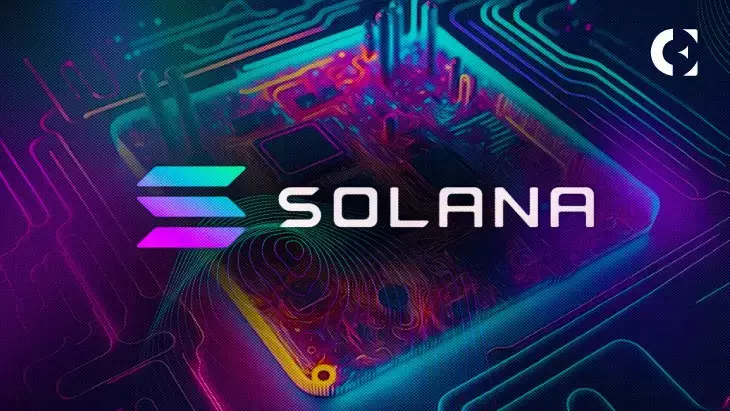Exploring Solana's dominance, annualized fees, and its evolving role in the blockchain and AI landscape.

Solana is rapidly emerging as a key player in the digital asset world, with its fast-growing ecosystem attracting significant attention. Let’s break down the key trends and insights surrounding Solana, its blockchain, and those all-important annualized fees.
Solana's Strong Fundamentals and Ecosystem Activity
Solana distinguishes itself with its deep, diverse, and high-volume on-chain activity. Grayscale research highlights that Solana leads among smart contract platforms in users, transaction volume, and transaction fees. The ecosystem supports a wide array of decentralized applications (dApps), showcasing its flexibility and appeal across various sectors like DeFi, telecommunications, and consumer tech.
Annualized Fees: A Glimpse into Solana's Economic Engine
Transaction activity on Solana generates substantial revenue. The ecosystem currently earns roughly $425 million in monthly fees, which translates to over $5 billion annually. This demonstrates Solana’s ability to convert on-chain engagement into tangible economic value, making it a compelling platform for developers and users alike.
Speed, Scalability, and Network Efficiency
One of Solana’s biggest advantages is its technical performance. With blocks produced approximately every 400 milliseconds and transaction finality in about 12 to 13 seconds, Solana combines high throughput with low transaction costs, averaging just $0.02 per transaction. This efficiency has attracted millions of users, maintaining affordability for both developers and consumers.
Jupiter's Role in the Solana Ecosystem
Jupiter, a leading decentralized exchange (DEX) aggregator on Solana, plays a crucial role in optimizing trading. Its advanced routing engine, Metis, ensures seamless, efficient, and cost-effective transactions. Jupiter commands over 90% of aggregator traffic on Solana, underscoring its pivotal role in driving DeFi growth within the network. Features like minimized slippage and dynamic fee adjustments make Jupiter a preferred platform for traders.
Tether's Open-Source Wallet Development Kit (WDK)
Tether's unveiling of an open-source Wallet Development Kit (WDK) marks a significant step in supporting decentralized finance and AI use in the crypto space. The WDK supports multiple blockchains, including Bitcoin, Ethereum, and Solana, enabling developers to build self-custodial wallets for both humans and AI agents. This initiative aligns with the vision of AI agents participating in machine-to-machine commerce, relying on stablecoins and Bitcoin for transactions.
The Future of Solana: Innovation and Expansion
Solana's development community continues to expand, with more than 1,000 full-time developers actively contributing to the protocol. This human capital drives innovation within the ecosystem, ensuring long-term sustainability and technological progress. Future developments, like Jupiter Lend and JupNet, highlight the commitment to innovation and a more interconnected DeFi ecosystem.
Final Thoughts
From its impressive transaction speeds to its growing ecosystem of dApps and strategic integrations, Solana is making waves. Whether you're a seasoned crypto enthusiast or just dipping your toes in the water, keeping an eye on Solana is definitely worth your while. Who knows? Maybe one day, your fridge will be paying for its own electricity using Solana-based microtransactions. The future is wild, y'all!












































![Ultra Paracosm by IlIRuLaSIlI [3 coin] | Easy demon | Geometry dash Ultra Paracosm by IlIRuLaSIlI [3 coin] | Easy demon | Geometry dash](/uploads/2026/01/31/cryptocurrencies-news/videos/origin_697d592372464_image_500_375.webp)










































